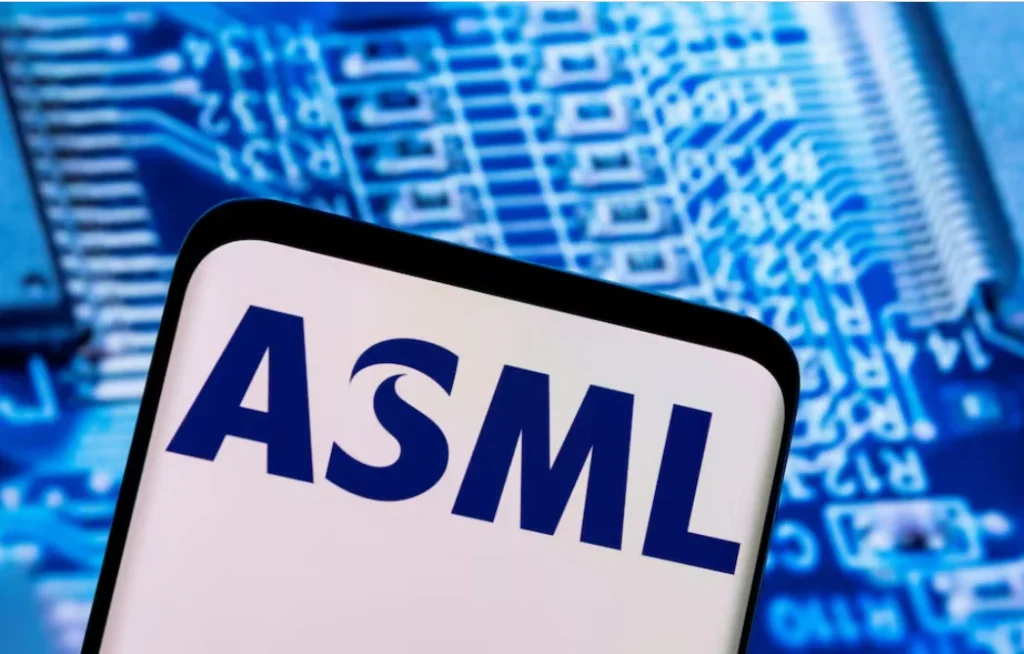ASML Warns 2026 Growth May Stall Amid U.S. Tariff Uncertainty Affecting Chipmakers
ASML Holding NV, the world’s leading supplier of computer chip-making equipment, issued a cautious outlook on Wednesday, stating it may not achieve its anticipated growth in 2026. The warning comes as semiconductor manufacturers building factories in the United States await clarity on potential U.S. tariffs that could significantly impact their investment decisions.
ASML’s 2026 Growth Target Under Threat from U.S.-EU Tariff Talks
According to ASML Chief Financial Officer Roger Dassen, chipmakers in the U.S. are delaying major investments as they await clarity on proposed tariffs. Speaking during a media call, Dassen highlighted that a potential 30% U.S. tariff on European goods could raise the price of a single high-end ASML machine from €250 million to €325 million.
“Clarity is what customers are looking for before they can really finalize their views as to what they’re going to do,” Dassen explained.
ASML has indicated that it would pass these additional costs on to customers, but this has not eased market concerns. Shares in ASML fell as much as 7.8% following the announcement, marking the company’s worst trading day since October. Industry peers, including ASM, BESI, and Soitec, also saw stock declines.
How Tariffs Could Impact ASML’s Supply Chain and Pricing
The potential U.S. tariffs could have both direct and indirect impacts on ASML:
- Increased Costs: A 30% tariff could add tens of millions of euros to the price of a single chip-making machine.
- Supply Chain Complexity: ASML’s equipment and parts often travel multiple times between the Netherlands and the U.S., potentially multiplying tariff exposure.
- Customer Hesitation: Semiconductor companies may delay or reduce orders until U.S. policy becomes clearer.
ASML CEO Christophe Fouquet noted in an internal company interview that the level of geopolitical and macroeconomic uncertainty is rising, specifically mentioning tariffs as a key concern.
“While we still prepare for growth in 2026, we cannot confirm it at this stage,” Fouquet said in an official statement.
If 2026 turns out to be a flat revenue year for ASML, it would be the first such occurrence since 2012, ending over a decade of uninterrupted growth.
Industry Reaction and Analyst Insights
Despite the cautious tone from ASML’s leadership, some investors remain optimistic about near-term demand.
Han Dieperink, Chief Investment Officer at investment firm Aureus, told media outlets he was not overly concerned about ASML’s outlook, citing solid customer demand reflected in the latest quarterly results.
However, analysts had been hoping ASML’s earnings report would provide stronger reassurance about its long-term growth plans, especially with 2026 in focus.
Key Takeaways for Investors and Industry Watchers:
- ASML may not hit its 2026 growth target due to U.S.-EU tariff uncertainty.
- Potential tariffs could increase the price of ASML’s high-end machines by up to €75 million.
- Chipmakers in the U.S. are delaying investment decisions pending clearer trade policies.
- ASML stock dropped nearly 8% following the announcement, impacting other semiconductor equipment makers.
- The company is working with its supply chain to mitigate potential tariff-related costs.
Final Thoughts
ASML’s warning highlights the increasing influence of geopolitical factors on the global semiconductor industry. While the underlying demand for chip-making equipment remains robust, trade policy uncertainty could disrupt planned expansions and growth forecasts. Investors and chipmakers alike will be watching closely for updates on U.S.-EU trade negotiations in the coming months.












